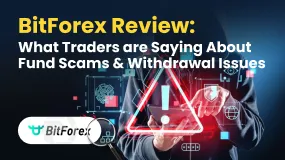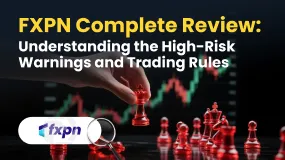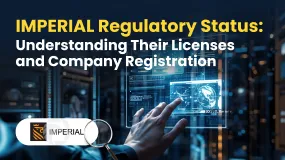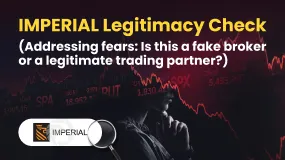Abstract:To protect yourself from falling into broker scams, it's crucial to perform thorough due diligence before engaging with a new online trading broker. Here is a list of key questions you should ask yourself to ensure that you're making an informed decision.
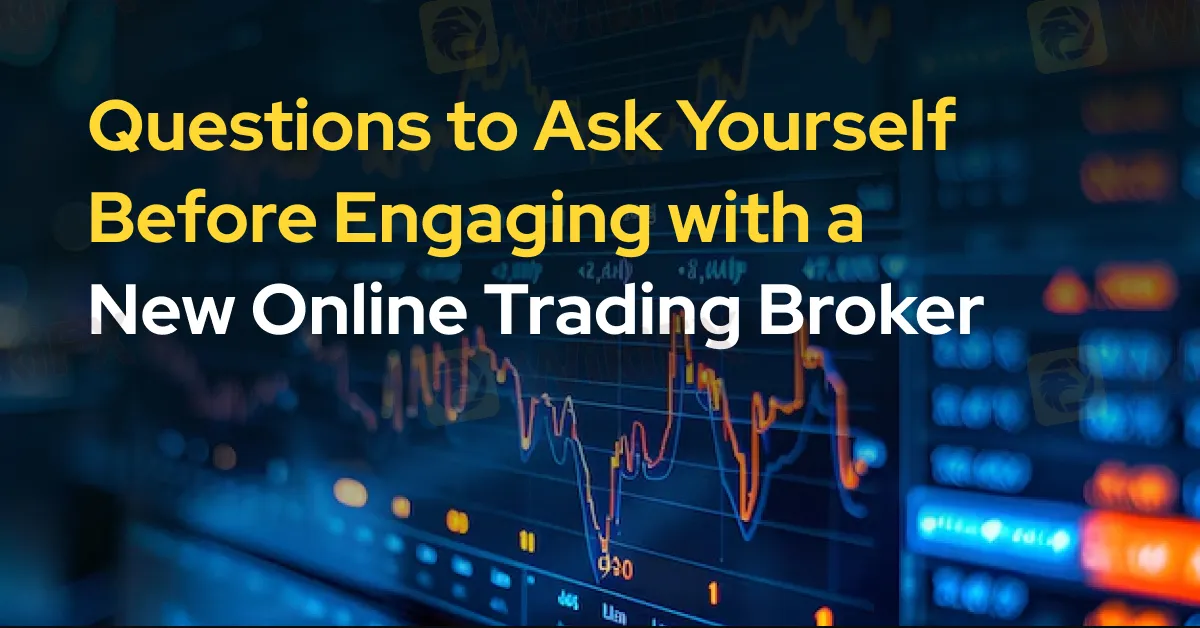
The rise of online trading has made it easier than ever for individuals to participate in global financial markets. However, with this convenience comes the risk of encountering unscrupulous brokers who may be more interested in stealing your money than helping you grow it.
To protect yourself from falling into scams, it's crucial to perform thorough due diligence before engaging with a new online trading broker. Here are some key questions you should ask yourself to ensure that you're making a wise and informed decision.

The first and most important question to ask is whether the broker is regulated by a recognized financial authority. Regulation is a critical factor in determining the legitimacy of a broker. Reputable brokers are typically licensed and regulated by financial authorities such as the Financial Conduct Authority (FCA) in the UK, the U.S. Securities and Exchange Commission (SEC), the Australian Securities and Investments Commission (ASIC), or the Cyprus Securities and Exchange Commission (CySEC).
Regulation ensures that the broker operates within a framework of rules designed to protect investors. It also means that the broker is subject to regular audits and oversight, which helps to prevent fraudulent activities. If the broker is not regulated or is regulated by a less reputable authority, it's a red flag that you should consider moving on to a different broker.

Even if a broker is regulated, it's important to assess its reputation within the trading community. Online forums, review sites, and social media platforms can provide valuable insights into other traders' experiences with the broker. Look for reviews that mention issues such as withdrawal problems, poor customer service, or unexpected fees. However, be wary of overly positive or negative reviews, as they may be fake.
This is where tools like WikiFX can be invaluable. WikiFX is an online platform that offers detailed information on thousands of brokers, including their regulatory status, user reviews, and any complaints filed against them. By using WikiFX, you can easily check a broker‘s background, ensuring that you’re dealing with a legitimate and reliable entity. This extra step can help you avoid falling into the trap of scam brokers who may otherwise appear legitimate at first glance.

Transparency is key when dealing with any financial service provider. Before opening an account, carefully read the broker's terms and conditions, paying close attention to the fine print. A trustworthy broker will clearly outline their fees, trading conditions, margin requirements, and withdrawal processes. They should also provide detailed information about the risks involved in trading.
If the broker's terms are vague or overly complex, it could be a sign that they are trying to hide something. Similarly, if the broker pressures you to sign up quickly or discourages you from reading the terms and conditions, it's a major warning sign.

Another critical area to investigate is the broker's deposit and withdrawal policies. Many scam brokers make it easy to deposit funds but extremely difficult to withdraw them. Before committing any money, ensure that the broker offers a straightforward and transparent withdrawal process.
Check whether there are any restrictions on withdrawing funds, such as high minimum withdrawal amounts or long processing times. It's also important to know what payment methods the broker supports and whether there are any fees associated with deposits or withdrawals. A reputable broker will make it easy for you to access your money and will not charge excessive fees for doing so.

The quality of the trading platform and tools provided by the broker is another factor to consider. A good broker will offer a reliable, user-friendly trading platform with access to essential tools such as charting software, technical indicators, and market news. The platform should also support features like stop-loss orders and automated trading, which can help you manage risk more effectively.
If the broker's platform is outdated, difficult to use, or lacks essential features, it may hinder your ability to trade effectively. Additionally, be cautious if the broker requires you to download software from untrusted sources, as this could be a sign of a scam.

Customer support is an often-overlooked aspect of choosing a broker, but it can make a significant difference in your trading experience. A reputable broker will offer multiple channels for customer support, including phone, email, and live chat, and will respond promptly to inquiries.
Test the broker's customer service by asking questions before you open an account. Pay attention to how quickly they respond and whether they provide clear and helpful answers. If you encounter delays, unprofessional behaviour, or vague responses, it's a sign that the broker may not be reliable.

Engaging with a new online trading broker requires careful consideration and thorough research. By asking yourself these critical questions, you can significantly reduce the risk of falling into a scam and increase your chances of finding a trustworthy broker that meets your trading needs. Remember, if something feels off or too good to be true, it's worth taking a step back and re-evaluating your options. Your financial security should always be your top priority, and using resources like WikiFX can provide you with the insights needed to make an informed decision.












